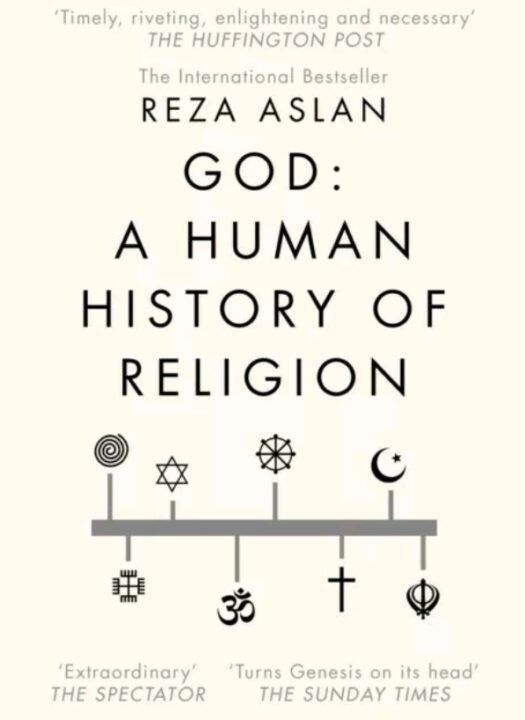Author: Reza Aslan
Corgi Publishers

Nauman Hadi, London, UK
The inception of religion in human history has long been debated not just by those that claim their founder received revelation from on high, but also by those who seek to understand the anthropological evolution of religion. How did religion come about? How did it spread? What were the differing forms of it in human prehistory? Most importantly, why did it arise?
The above questions are explored by the author in what is a brief overlook at the rise of religion and its growth from the earliest records of religious practice to the complicated philosophical arguments of the Ash‘arites in Islam.
The focus, however, is on the innate human desire and inclination to humanise the concept of the Supreme Being, or in the case of primitive tribes, many beings.
Of course, this is an obvious question – why is God always portrayed as having human characteristics? Aslan ventures deep into the past and analyses religion from the very start: from the very first depiction of what historians think is god painted onto the wall of a cave in France to the evolution of this “humanised god” as a reflection of the needs of man. As the needs of humankind change so does the nature of this god. As such, this book is an attempt to view all religions including the Abrahamic faiths from this angle.
At the start, the theories of the origin of religion is explored with the Durkheimian argument that religion has been fashioned by humans for the smooth running of society being refuted as only applicable to primitive man, and rightly so. The idea of religion as an altruistic force has also been analysed – after all does not religion cause its followers to act in ways that are geared towards maintaining peace and thus being the ultimate lawgiver? Paul Bloom’s research is presented to negate this with the words “…there is little evidence that ‘the world’s religions have an important effort on our moral lives’.” More importantly, both the above theories only explain the function of religion, they give us no insight as to why religion came into existence? It is at this place that the “humanised god” theory comes into the scene with the rest of the book being dedicated to unravelling it and applying it to every major religious milestone in human history.
Perhaps man’s innate tendency to humanise the concept of God makes sense when we look at the development of polytheism. “Our Theory of Mind makes us inherently biased toward ‘humanizing’ whatever phenomena we encounter. So then, how else would we picture the gods except in human form? We are the lens through which we understand the universe and everything in it” argues the author.
However, it should be pointed out that though this is true with regard to the development of polytheism, it is an incorrect conclusion to draw with regards to its origin. This is because another theory, which has been completely overlooked owing to the strictly non-religious perspective of the narrative, argues that religion came to man via Divine inspiration in the form of revelation from God Himself and it has always been monotheism which devolves over time into polytheism. There is of course ample evidence to suggest that this is the case such as the universality of religious ideas, beliefs and practices. After all, the author himself acknowledges that religious themes in cave paintings sprouted all over the world. Hence, what led to this universal shift towards the same religious ideas amongst primitive tribes that hardly knew of the existence of each other?
This idea has been well argued in Revelation, Rationality, Knowledge and Truth by Hazrat Mirza Tahir Ahmad, Khalifatul Masih IVrh. Therefore, though it may be correct to assume that humans attribute their characteristics onto their self-created idols when it comes to polytheism, it is not the case when fresh religion is bestowed upon man since it arrives from a non-human source. The “humanized god” theory falters when we ask as to the need for monotheism in human history when polytheism is sufficiently fulfilling man’s need to transfer his own attributes onto the gods?
God: A Human History of Religion is certainly an interesting read since the author has easily explained complex anthropological ideas whilst piecing together a coherent history that matches his underlying argument. Millennia of religious history is gathered into a few pages paving an easy to follow narrative of how religious history, albeit from the author’s perspective, unfolded with many theories being explained along the way.

